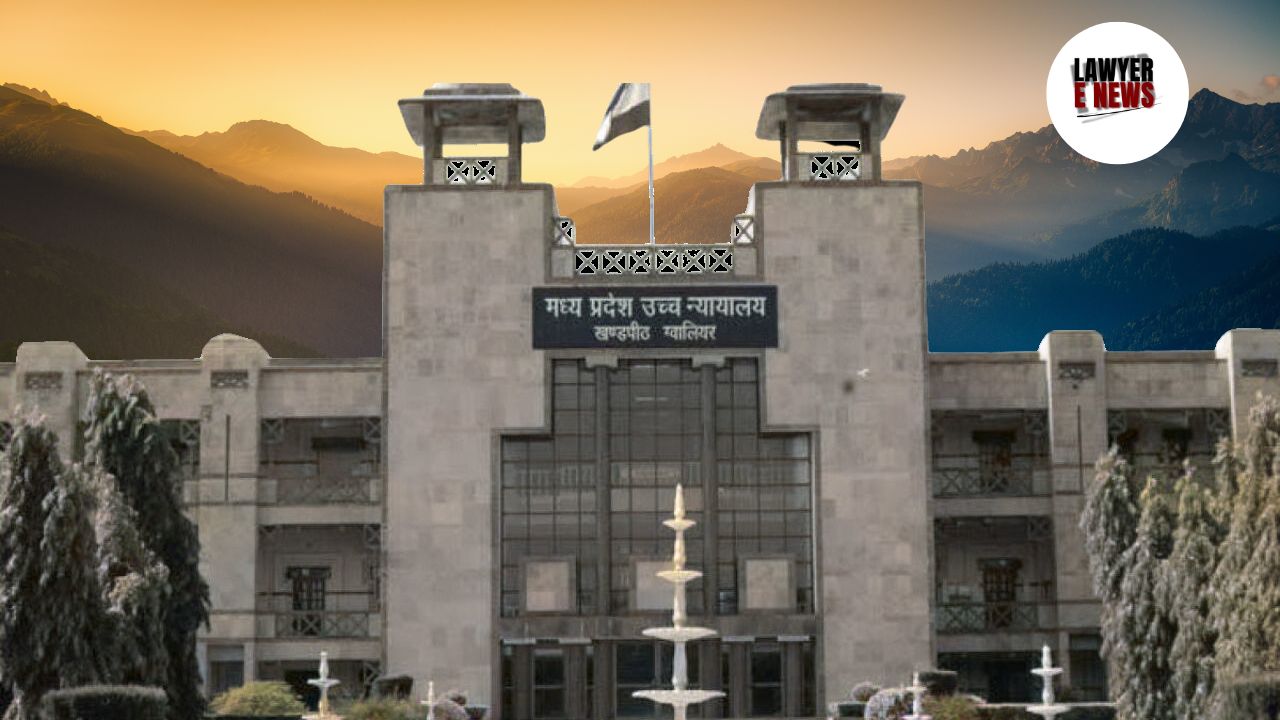-
by sayum
14 February 2026 2:22 PM



On November 12, 2024, the Madhya Pradesh High Court, in Shabbir Bhai Palanpurwala and Others v. The State of Madhya Pradesh and Others, quashed criminal proceedings initiated against the petitioners under Sections 420, 467, 468 read with Section 34 of the Indian Penal Code (IPC). The Court ruled that the dispute, arising from a sale transaction involving waqf property, was purely civil in nature and did not warrant continuation of criminal proceedings.
The case arose out of a private complaint filed by the respondents, Shabbir Hussain and Hakimuddin (buyers of the disputed property), alleging that the petitioners had fraudulently sold them waqf property based on a forged letter of authorization. The property in question was identified as Medavala Building, located in Ujjain, which belonged to Mazar-e-Nazmi, a registered waqf.
The respondents alleged that the petitioners misrepresented their authority to sell the property by presenting a letter dated September 11, 2013, purportedly issued by the Waqf Board. Relying on this representation, the respondents paid ₹23,00,000 by cheque and ₹20,00,000 in cash as part of the sale consideration. A sale deed was executed in 2015.
However, the respondents later discovered that the Waqf Board had challenged the sale deed, alleging that the authorization letter was forged. This prompted the respondents to file a private complaint, accusing the petitioners of criminal offenses, including forgery and cheating. Based on the complaint, the Judicial Magistrate First Class (JMFC), Ujjain, took cognizance of the offenses and initiated criminal proceedings.
The following legal issues were central to the case:
Whether the dispute was of a civil nature or amounted to a criminal offense under the IPC.
Whether continuation of criminal proceedings would amount to an abuse of the legal process.
Senior Advocate Surendra Singh, representing the petitioners, argued that the entire transaction was undertaken in good faith on behalf of Mazar-e-Nazmi. The amounts received from the respondents were duly credited to the account of the waqf, and no personal misappropriation was alleged.
The petitioners contended that the matter was purely a civil dispute concerning the validity of the sale deed and the alleged forgery of the authorization letter. They pointed to pending civil suits filed by the Waqf Board and the respondents to substantiate their claim.
Reliance was placed on the Supreme Court judgment in Paramjeet Kaur v. State of Uttarakhand, (2013) 11 SCC 673, where the Court held that criminal proceedings should not be used to settle essentially civil disputes.
Advocate Varun Tankha, appearing for the respondents, opposed the petition, arguing that the petitioners had used a forged document to sell waqf property and had deceived the respondents. The respondents claimed to be bona fide purchasers who had relied on the petitioners' misrepresentations.
The respondents also highlighted that the Economic Offences Wing (EOW) had registered a similar case against the petitioners, indicating habitual fraudulent conduct.
Justice Subodh Abhyankar carefully analyzed the facts and circumstances and made the following key observations:
The Court emphasized that the dispute between the parties was essentially civil in nature. It noted that:
A civil suit filed by the Waqf Board to challenge the validity of the authorization letter and the sale deed was pending.
Another suit filed by the respondents to recover the amounts paid under the sale transaction was also under adjudication.
The Court observed: "This Court has no hesitation to hold that the dispute between the parties is of civil nature only, which has been given a cloak of criminal offense."
The Court noted that the amounts received from the respondents were credited to the account of Mazar-e-Nazmi and there was no evidence of personal misappropriation by the petitioners.
It held: “Admittedly, the amount received by the petitioners has been credited to the account of Mazar-e-Nazmi. There is no material to suggest that the petitioners misused or misappropriated the amounts received.”
Referring to the Supreme Court’s judgment in Paramjeet Kaur v. State of Uttarakhand, the Court reiterated that criminal proceedings should be quashed where a civil dispute is dressed up as a criminal case.
"The High Court must see whether a dispute, which is essentially of a civil nature, is given a cloak of criminal offense. In such a situation, if a civil remedy is available and is, in fact, adopted, the High Court should not hesitate to quash the criminal proceedings to prevent abuse of process of the court."
The Court concluded that continuing the criminal proceedings would amount to an abuse of the legal process. It quashed the order of cognizance dated February 10, 2022, and the subsequent criminal proceedings under Sections 420, 467, 468 read with Section 34 of the IPC.
"If it is found in the pending civil suit that the letter dated 11.09.2013, on the basis of which the sale deed was executed, was forged, the respondents’ right to pursue criminal remedies shall stand restored."
This judgment reinforces the principle that criminal proceedings should not be used as a substitute for civil remedies, particularly in property disputes. By quashing the criminal proceedings, the Court has ensured that the matter is resolved within the framework of civil litigation.
Date of Decision: November 12, 2024
